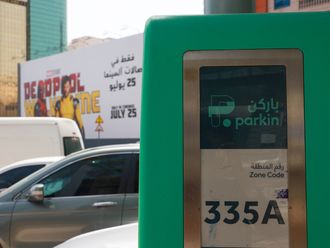Doha: Qatar's plan to list government bonds on the country's bourse for the first time may motivate companies in the world's fastest-growing economy to sell bonds locally as Europe's debt crisis prompts its banks to lend less.
The central bank of Qatar said yesterday it would list treasury bills on the Qatar Exchange tomorrow "as a first step toward starting a secondary market." Listings of bonds and sukuk, or Islamic notes, would follow, the central bank said.
The urgency of developing Gulf credit markets has heightened as Eurozone countries seek to raise $1.1 trillion of debt in 2012, according to Deutsche Bank AG forecasts. Rather than relying on investment from Europe, borrowers may seek to lure investors in the Arabian Gulf.
Increasing transparency
"This will increase transparency and allow individual investors to get into the bond market," Samer Mardini, vice-president of fixed income and Islamic finance products at SJS Markets Ltd in Dubai, said. "There is big demand from individual investors. The move will also encourage companies to sell more debt."
Qatar raised $5 billion in dollar bonds this year, making it the second-biggest issuer in the Middle East and North Africa after that of Abu Dhabi's International Petroleum Investment Co (Ipic), according to data compiled by Bloomberg. Qatar's economy may expand 19 per cent this year, the International Monetary Fund forecasts. Gulf Cooperation Council (GCC) issuers raised $27.5 billion (Dh101.1 billion) in US dollar bonds this year, bringing total sales in the last three years to about $101 billion, according to data compiled by Bloomberg.
Qatari companies and banks have been inactive in the debt markets in 2011 unlike counterparts in Abu Dhabi, Dubai and Saudi Arabia, which have issued debt this year.
In 2010, state-owned developer Qatari Diar Real Estate Investment Co. sold $1 billion in five-year bonds, and other domestic issuers have sukuk plans in the pipeline.
Doha Bank QSC, Qatar's fourth-biggest lender by assets, plans to sell a benchmark bond in the first quarter, Deputy Chief Financial Officer Sanjay Jain said last month.
Masraf Al Rayan, Qatar's second-biggest Islamic lender, said in March it obtained approval from its shareholders to sell sukuk.
The average yield of GCC debt fell 31 basis points, or 0.31 percentage point, this year to 4.993 percent on Dec. 23 as Qatari bonds rallied, according to the HSBC/Nasdaq Dubai GCC US Dollar Sukuk/Bond Index. This was a wider decline than the 10 basis-point decline to 5.86 percent experienced by emerging markets bonds, JPMorgan Chase & Co.'s data show. The yield on the Qatari government's 4 percent bond due January 2015 slumped 75 basis points this year to 2.38 per cent yesterday, according to data compiled by Bloomberg.












